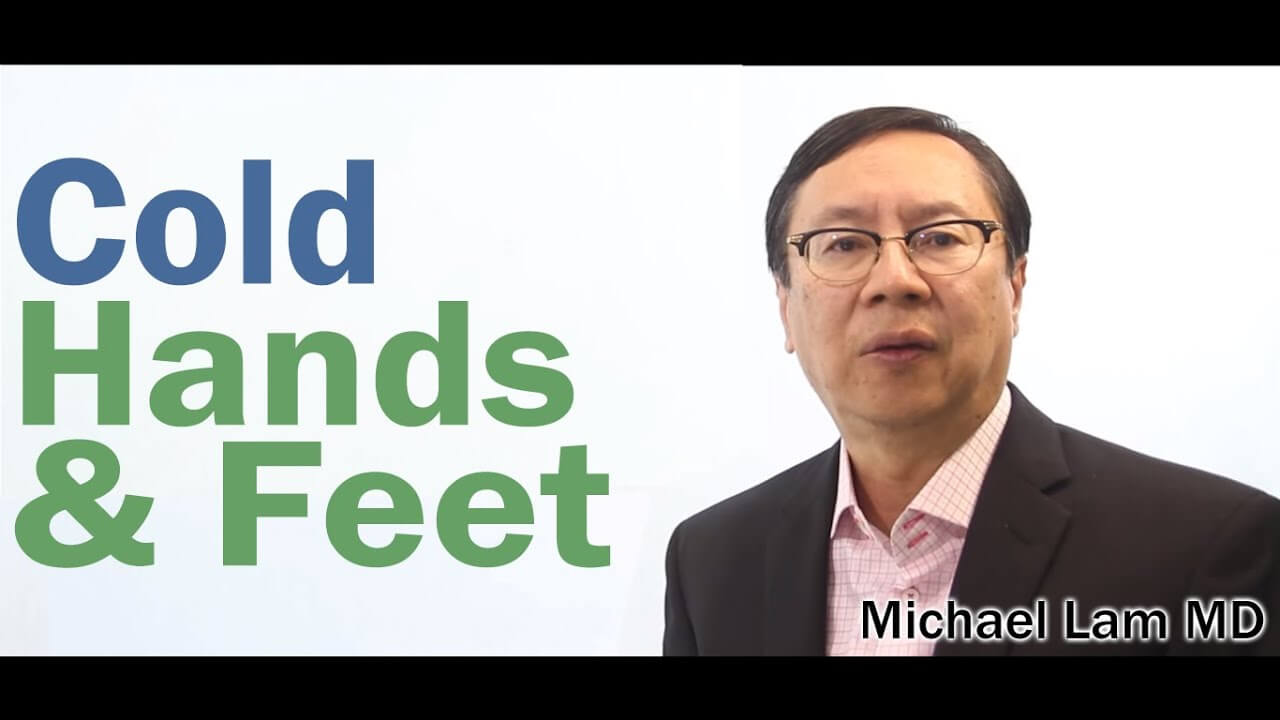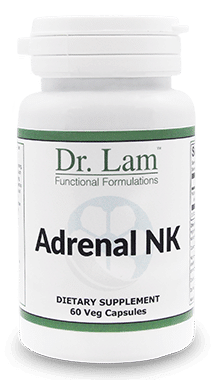
Some people are more sensitive to cold than others, and it’s usually nothing serious. You might have noticed that, although people around you are feeling warm, you are always a bit chilly. You might even have cold hands and feet during the warmer months of the year. Often this is just your body's way of regulating temperature. It might have to do with your bodyweight or metabolism. But sometimes, this can be due to a condition called Raynaud’s disease.
Raynaud’s disease is a relatively harmless condition. It's when the blood vessels in your extremities constrict a bit too much from cold exposure. And although blood vessels are supposed to constrict from the cold, with this condition they almost completely close. This then stops blood from flowing to these areas, making them feel even colder. This can also lead to some quite striking color changes in the skin. Fingers or toes can turn white, blue, and purple.
There are cases, however, when cold hands and feet are actually a sign of something more serious. This is particularly true if you have suddenly developed cold hands and feet. Possible causes include hypothyroidism, heart issues, adrenal fatigue, lupus, rheumatoid arthritis, and even peripheral artery disease (PAD). One way to tell if your Raynaud’s condition is due to some vascular problem is to check for skin changes, nail changes, or ulcerations on your extremities that are not healing properly.
One of the systems most involved in cold hands and feet is the cardiovascular system, which helps circulate warm blood through your body. But the issues related to this condition are closely connected to other parts of the body, so it is important to understand how these systems work together.
 Your Cardionomic Circuit is one of the six NeuroEndoMetabolic (NEM) Stress Response circuits that work together to fight stress. The other five are your Hormone, your Bioenergetics, your Neuroaffect, your Inflammation, and your Detoxification circuits.
Your Cardionomic Circuit is one of the six NeuroEndoMetabolic (NEM) Stress Response circuits that work together to fight stress. The other five are your Hormone, your Bioenergetics, your Neuroaffect, your Inflammation, and your Detoxification circuits.
Although all six circuits are engaged when you are facing stress, when you have cold hands and feet, we’re mainly dealing with your cardiovascular system, which is one of the components of the Cardionomic Circuit.
The other two components are the autonomic nervous system (ANS) and the adrenal glands. That means this circuit is closely linked with the Hormone and Neuroaffect circuits.
Your adrenals are your NEM’s first responders, and they release your body’s main anti-stress hormone, cortisol. They also release other important stress hormones, including adrenaline, which is the most powerful fight or flight activator your body has.
That’s where your cardiovascular system and ANS come in. When you are facing acute stress, your ANS kickstarts your fight or flight response by telling your adrenals to release these hormones. Adrenaline then prompts your heart to pump faster and harder in order to fill your blood vessels with more oxygenated blood. That then helps increase the energy in your system so you can deal with the stressor at hand.
But if that stressor is constantly there, the stress your body is facing is chronic, not acute. And your body was not made to handle chronic stress. That will lead to adrenal fatigue and dysregulation of your Cardionomic Circuit, as well as the entire NEM.
Thus, one possible link here is that if you have a condition underlying your cold hands and feet, such as PAD, lupus, or rheumatoid arthritis, that can be a huge chronic stressor on your body. In the long term, this makes you more vulnerable to cardiovascular dysregulation and issues such as cold hands and feet.
 An already dysregulated Cardionomic Circuit can lead to cold hands and feet as well. It’s a two-way street, and it’s sometimes difficult to tell which came first.
An already dysregulated Cardionomic Circuit can lead to cold hands and feet as well. It’s a two-way street, and it’s sometimes difficult to tell which came first.
Other Cardionomic Circuit dysfunction symptoms include heart palpitations, breathlessness, shortness of breath, and high blood pressure. If this continues, you can then start experiencing more severe Cardionomic symptoms, such as atrial fibrillation, POTS-like symptoms, and damage to the heart muscle.
This can also lead to symptoms of Adrenal Fatigue Syndrome (AFS). Those include fatigue, sleep problems, weight gain, brain fog, anxiety, mild depression, dry skin, hair loss, hypoglycemia, salt and sugar cravings, frequent colds and flu, food and drug sensitivities, hormone imbalance, and an inability to handle stress.
AFS can also include the Cardionomic Circuit symptoms mentioned above. This is because adrenal fatigue is usually accompanied by NEM dysregulation. When your adrenals are exhausted, the rest of your NEM has to compensate. Also, because your hormones are such a major part of almost every other function in your body, when your Hormone Circuit is not working properly, that can affect all your other NEM circuits as well.
Another link here is that you have low energy due to AFS. And when your body needs to conserve energy, a lot of your systems either shut down completely or slow down. This can reduce your body's ability to energize and heat itself.
The last link worth mentioning here is the connection with your thyroid. Your thyroid is one of the three Hormone Circuit components, along with the adrenal glands and reproductive organs. Many AFS patients also have an under-active thyroid, because the delicate balance of this circuit can be affected whenever one component is overworked. This is known as hypothyroidism.
So AFS can also lead to cold hands and feet because the thyroid is not working properly. And the thyroid controls the basal metabolic rate, which, when slowed, will lower the body’s overall temperature. And when your body temperature lowers, you’ll naturally feel that more in your extremities.
The trick here is that when you go to your regular doctors to complain about cold hands and feet, you might end up with no real answers. They might run some tests and see that your thyroid hormones are actually fine, you have no autoimmune issues, and your heart is working properly. Then you’ll be sent home and told it’s benign Raynaud’s disease and there’s not much you can or should do about it.
But you might be experiencing subclinical forms of thyroid issues, cardionomic conditions, or AFS. At the subclinical stage, these conditions won’t show up on lab tests but they are starting to develop. Yet if allowed to advance, these can lead to the more severe symptoms later on. That's why it's important to identify the root cause and address it.
If having cold extremities is due to a more serious condition, like PAD, lupus, or rheumatoid arthritis, then managing those will be the priority. If your hypothyroidism is subclinical, it could actually be due to AFS. In that case, adrenal fatigue recovery will go a long way to warm up your cold hands and feet. Cardionomic Circuit issues and any NEM dysregulation are also helped immensely by following an individualized adrenal fatigue recovery plan.
AFS recovery is composed of the adrenal fatigue diet, supplements, gentle exercise, sleep hygiene practices, and stress management. In some cases, certain herbs, natural hormones, and glandulars may also be used.
In the meantime, you also want to take steps to get comfortable. Become more aware of your surroundings, and take steps to stay warm, whether you’re indoors or outdoors. You might want to keep warm socks and gloves handy. Learn the art of layering your clothing. Get a heating pad for your feet. And try massaging your hands and feet to get the circulation going.
 Exercise is also very helpful for your circulation. But if you have more advanced AFS and Cardionomic Circuit dysfunction, then it can actually backfire. So you’ll want to wait until your recovery is well underway before attempting to do more demanding physical activity.
Exercise is also very helpful for your circulation. But if you have more advanced AFS and Cardionomic Circuit dysfunction, then it can actually backfire. So you’ll want to wait until your recovery is well underway before attempting to do more demanding physical activity.
One thing to really avoid is overdoing it with the indoor heating. First of all, other people around you may not appreciate it. Secondly, it’s not a sustainable long-term solution. It can make your eyes and throat dry, and it’s also not very good for your sleep. In fact, it’s better to use thicker duvets while keeping your bedroom a bit cooler than using too much heating and lighter covers.
Cold hands and feet can be a benign condition. Some people are just more sensitive to cold weather than others. But if you’ve developed this issue suddenly, it may be a sign of something else. The most common underlying causes in such cases are hypothyroidism and Cardionomic Circuit issues, and AFS is implicated in both.
If that’s your situation, the best way forward is to work with an AFS specialist to create an individualized AFS recovery plan that suits your current condition and needs. Then you can also add some of the recommendations above to keep your extremities warm in the meantime. But it’s important you don’t focus solely on getting warm. You need to also address the possible root causes.
If you have questions about Raynaud’s disease, hypothyroidism, Cardionomic Circuit dysregulation, or AFS, you can contact the Dr. Lam Coaching team. We can offer you a free** no-obligation phone consultation at +1-626-571-1234 where we will privately discuss your symptoms and what your options are. You can also send us a question through our Ask The Doctor system by clicking here.

Nattokinase, a systemic enzyme that increases circulation
Getting cold hands and feet suddenly out of the blue likely means there’s a deeper problem at work. It’s important to figure it out before it progresses and causes more serious symptoms and issues. But, thankfully, there are a few things you can do to stop that progression.